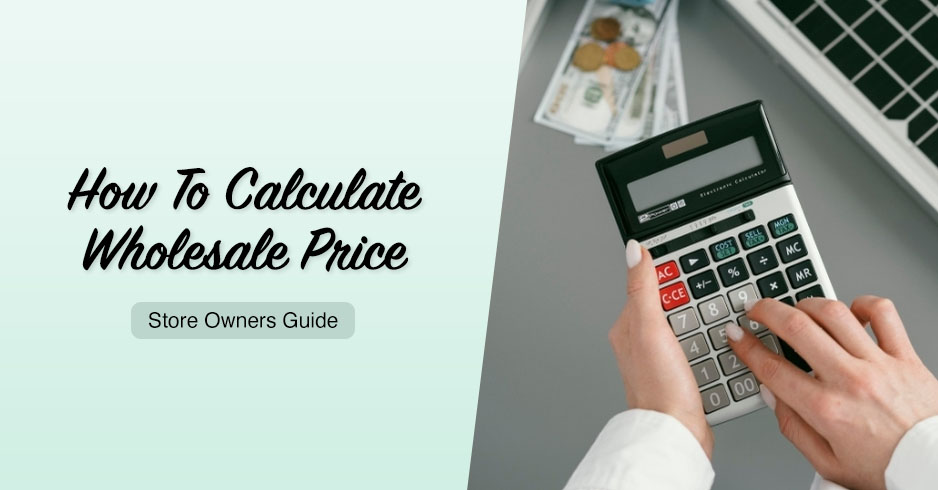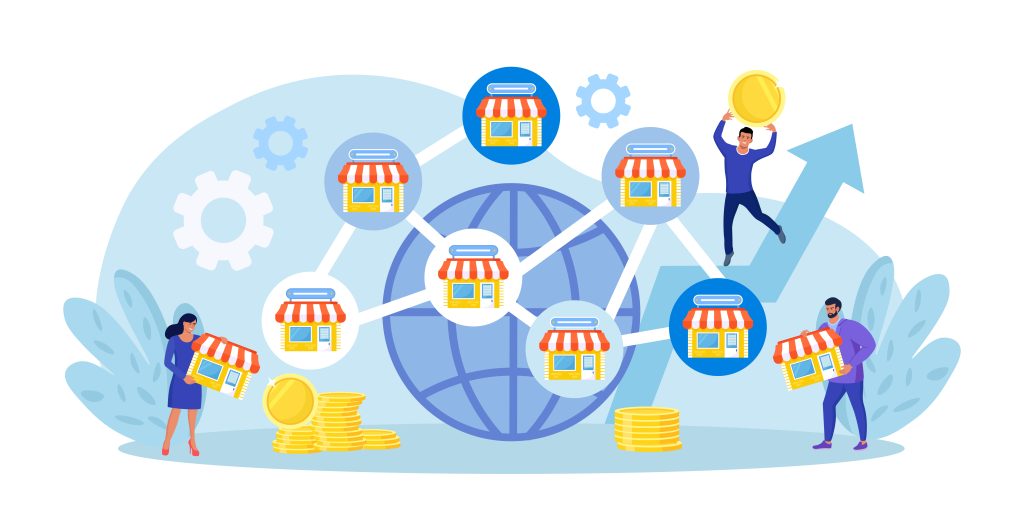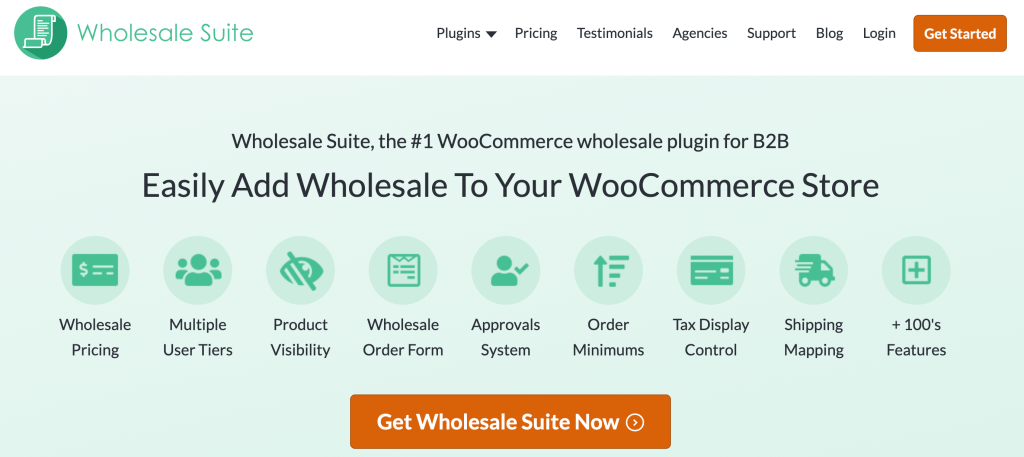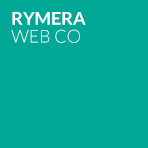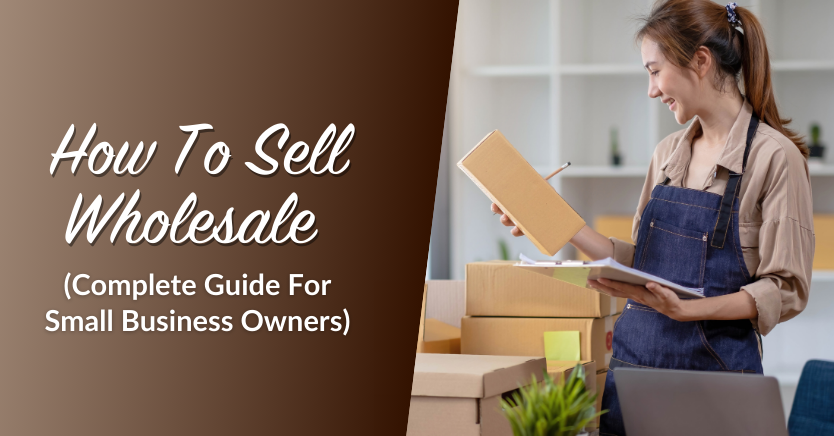
Is your small business struggling to stay afloat? When you’re first starting, finding customers and making consistent sales can be a challenge. Even if you have a good product, scaling takes time. This delay can put stress on your finances and endanger your entire business. This is why many store owners consider learning how to sell wholesale.
Learning how to sell wholesale can bring in revenue that might save your company. Not to mention, it’s easier than you think to get started and turn it into a lucrative revenue stream. You really only need a few loyal wholesale buyers to keep you in business.
In this post, we’ll discuss why it’s a good idea to sell wholesale as a small business. Then, we’ll provide you with four tips to help you get started right away. Let’s get to it!
What Is A Wholesale Business?
Wholesale businesses sell products in bigger quantities to other businesses or retailers. The wholesale business model focuses on bulk sales, offering goods at lower per-unit prices.
Thanks to recent developments in e-commerce, venturing into wholesaling is now easier than ever. For instance, you can use an all-in-one solution like Wholesale Suite to bring your entire wholesale operations to WooCommerce.
Wholesale Suite offers features like wholesale pricing, order forms, lead management, and flexible payment options, making it simpler to run a wholesale business online.
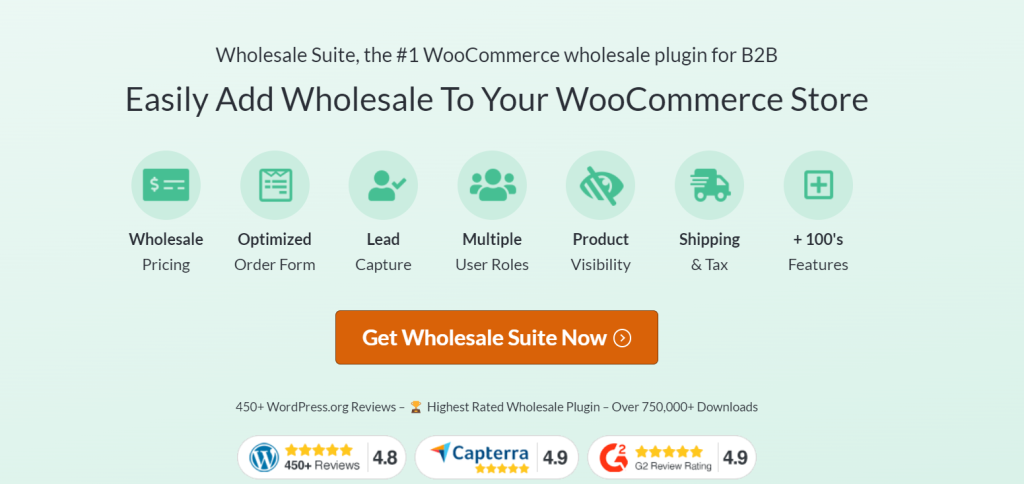
What Are The Advantages Of Selling Wholesale?
Launching a small business is a risky task. While the growing e-commerce world has made it more accessible, nearly 20 percent of businesses still fail in their first year.
Moreover, scaling is cited as one of the biggest obstacles for small businesses. This may be particularly true if you sell a highly niche product or a limited number of items.
However, the good news is that selling your products wholesale can help you organically grow your small business faster. Let’s explore how learning how to sell wholesale can benefit you.
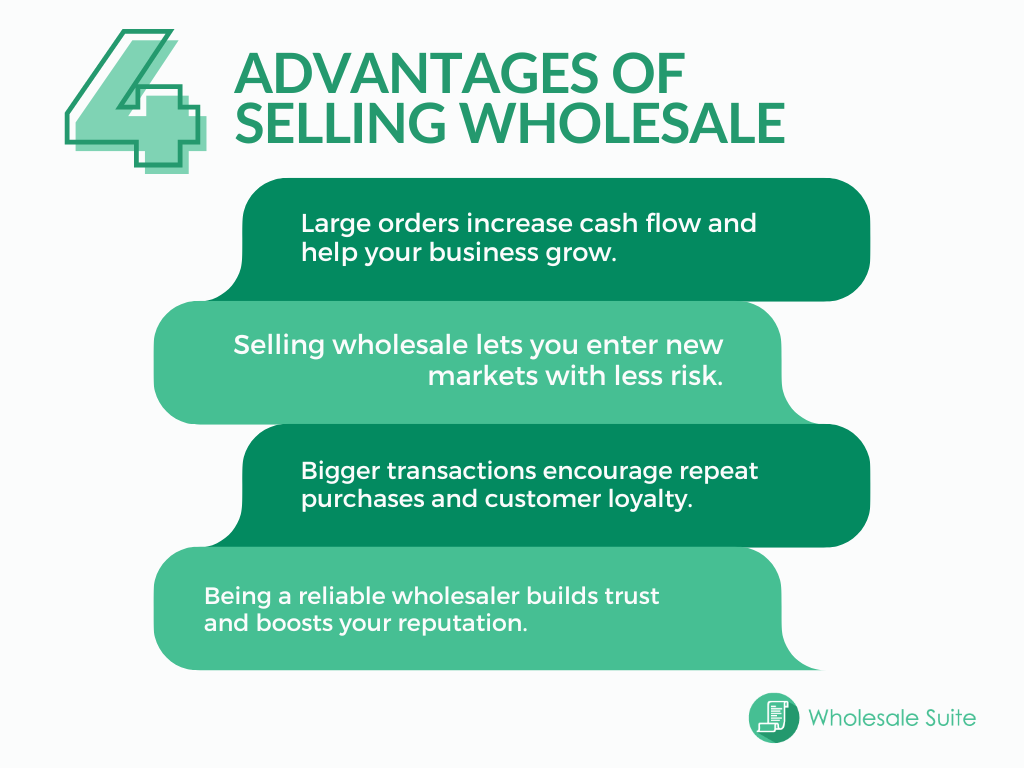
1. Selling wholesale can boost your cash flow significantly
Wholesale customers can order hundreds to thousands of dollars worth of goods in a single transaction. By catering to wholesale buyers, you can expect a significant increase in average order volume and value.
This increase in cash flow not only gives you stability but also helps you grow your business. With a steady income from wholesale deals, you get resources to invest in outsourcing tasks that are not your expertise. This frees up valuable time and resources for core activities like product development and market research.
2. Wholesaling allows you to enter new markets with less risk
Expanding into new markets often entails significant financial costs and economic uncertainties, which can be daunting for small businesses. However, selling wholesale presents an opportunity to tap into new markets with lower risks.
By building relationships with wholesale buyers, you can use their existing customer base and market knowledge. This connection helps you reach new customers who might not have tried your products before.
Also, selling wholesale lowers your marketing and promotion costs when you expand into new markets. Instead of spending a lot on advertising, you can count on your wholesale partners to promote your products to their customers.
3. It increases customer lifetime value
Customer lifetime value (CLV) refers to the total revenue a customer generates throughout their relationship with your business. Selling wholesale can boost customer lifetime value significantly by conducting transactions in larger volumes.
Selling in bulk also allows you to provide competitive pricing to your wholesale buyers. This means they can enjoy discounted rates, which further incentivizes them to make repeat purchases. In the long run, this fosters customer loyalty and strengthens your relationships with wholesale buyers.
4. Selling wholesale enhances business credibility
Wholesale customers are always on the lookout for reliable suppliers that can meet their demands for bulk orders while maintaining product quality. When you establish your business as a wholesale supplier, you demonstrate your capability to handle large-scale operations and improve your credibility in the industry.
Furthermore, selling wholesale provides an opportunity for your business to work alongside established retailers and brands. When your products are stocked along well-known industry names, it enhances your brand’s perceived value.
Satisfied wholesale customers are also more likely to spread positive word of mouth about your brand, which can solidify your reputation and attract more wholesale buyers to your business.
How To Sell Wholesale: 7 Key Steps To Get Started
After understanding the key benefits of wholesaling, you’re probably eager to dive in. In this section, we’ll break down the process for you in easy-to-follow steps. Let’s get right into it!
1. Decide on the wholesale products you want to sell
The first step in selling wholesale is deciding what products to offer. You might want to look into your existing offerings and identify the products with high demand and high profit margins.
Here are some key considerations that may help you out:
- Demand: What products are popular in your industry? Research on current market trends to identify what wholesale buyers are looking for.
- Profit margins: When selling in bulk, you sell products at a lower price per unit. Consider your profit margins per product to ensure profitability (more on this later).
- Inventory: Bigger, heavier items may be more expensive to store and ship.
- Purchase frequency: Choose products that customers will need to reorder regularly, such as office supplies or consumables.
If you’re still on the lookout for the right products to offer, we’ve curated a list of the best wholesale items to sell, which you can check out below:
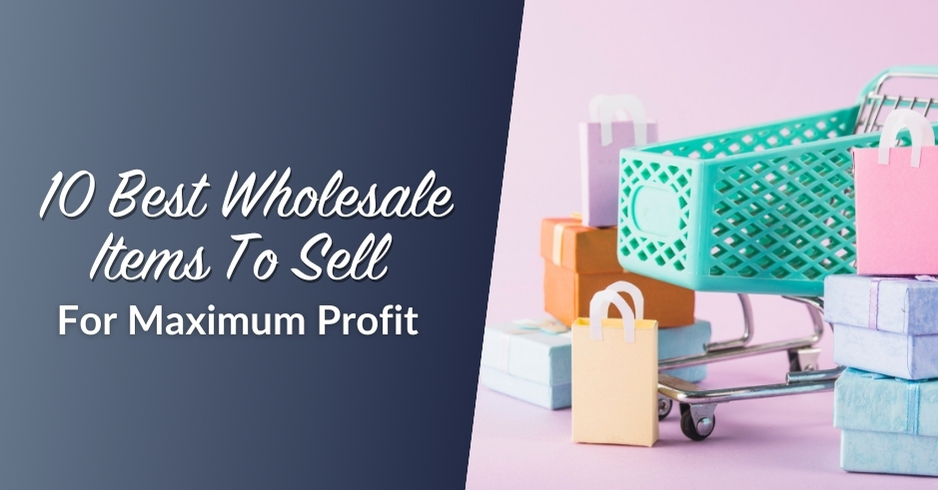
We also created a list of the best wholesale items to sell from home, if you’re looking to get started on this scale.
2. Build your supplier network
Now that you have decided on the products you want to sell, the next step is to find reliable suppliers for these products. However, don’t rely on just one supplier—having a solid network of suppliers ensures you have backup options even when supply chain disruptions happen. This is crucial in wholesale, where timely deliveries and reliability are key to fostering lasting partnerships.
Start by researching potential suppliers who offer the products you want to sell. If possible, consider working with local suppliers. Choosing local businesses can help you reduce shipping costs and lead times.
Likewise, look for suppliers with a good reputation and a track record of reliability. Compare prices, terms, and conditions, and don’t be afraid to negotiate. Good negotiations can result in better deals and long-term savings for your business.
3. Choose your wholesale pricing strategy
The price you set for your wholesale products must cover your costs, provide a profit margin, and appeal to bulk buyers. There are a lot of wholesale pricing strategies you can look into, such as cost-based pricing, or value-based pricing.
According to industry insights, wholesalers and manufacturers typically aim for 15-20% profit margins. However, this will still depend on your industry or specific niche.
To make things easier for you, we offer a free wholesale price calculator you can use to determine the best prices for your offerings:
Set minimum order requirements
Another thing to consider is setting minimum order requirements. This helps ensure each bulk order is worthwhile for your business. Decide on a minimum number of units (or order value) that a buyer must purchase to quality for bulk prices. For example, you may want to require orders of at least 50 units before buyers can access wholesale prices.
4. Offer flexible payment terms
To make your deals more attractive to wholesale buyers, offer flexible payment terms. Providing options that help buyers manage their cash flow can make your offerings more accessible and set you apart from competitors. For example, you can offer installment options, NET 30/60/90 terms, or deposit payments.
Plugins like Wholesale Payments make setting up flexible wholesale payment options a breeze in your WooCommerce store. With this plugin, you can easily set and create custom payment plans that match the requirements of your wholesale buyers.

5. Bring your operations online
For every online business, a powerful website is critical. This is equally true for any small business hoping to offer wholesale.
However, a wholesale business (even a small one) will require some unique features. This will include functionalities to accommodate wholesale order forms and special wholesale pricing. If you’re not using a straightforward tool, setting all of this up can take a lot of time and effort.
To get started right away, we recommend using an all-in-one software solution like our Wholesale Suite plugin:
In addition to wholesale pricing and order forms, our plugin allows you to easily perform almost every task required for your online wholesale business. For instance, the plugin lets you easily create unique user roles and set minimum order quantities. It can even help you manage your taxes.
Moreover, Wholesale Suite integrates with essential e-commerce plugins such as WooCommerce and Advanced Coupons. You can even pair it with our lead-capture tool, which allows you to easily create a user registration form for wholesale customers.
6. Market your wholesale products
Finding customers is likely one of the biggest challenges you face as a small e-commerce entrepreneur. While wholesaling can help you overcome this obstacle more easily, you’ll still need to put in some work to market your offerings.
Make your e-commerce website work for you
Your e-commerce website is not an avenue for buyers to buy your products–it’s also a powerful tool to help you acquire new customers. To maximize your online visibility, make sure that your website is SEO-optimized. This includes adding relevant keywords to your content and product listings, creating quality content, and making your website mobile-friendly.
We have a guide about creating SEO-optimized product descriptions, which you can check out below:
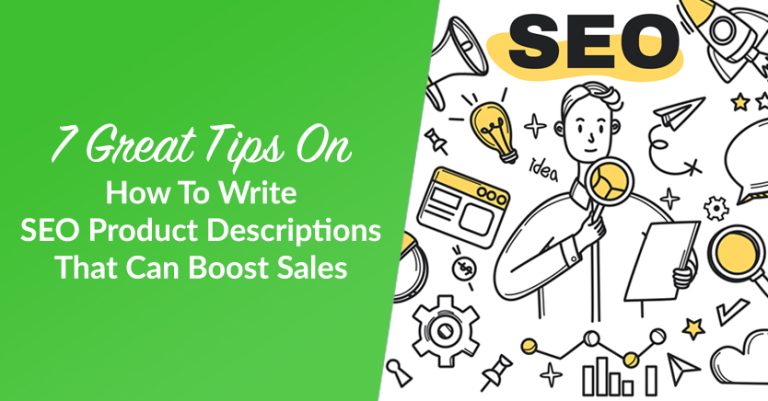
Another effective tip is to provide a wholesale registration form–this informs potential customers that you are open to accepting bulk orders. Our plugin, Wholesale Lead Capture, allows you to easily create a customized B2B registration form, allowing bulk buyers to sign up on your WooCommerce store and get access to wholesale prices.
Attend trade shows
Finding customers is likely one of the biggest challenges you face as a small e-commerce business owner. While wholesaling can help you overcome this obstacle more easily, you’ll still need to put in some work.
If you want to kickstart your new wholesale efforts, attending trade shows can really accelerate the process. For instance, if you live on the west coast and you want to start selling your artisanal chocolate to retailers, you might want to attend the Northwest Chocolate Festival:
Trade shows offer an excellent opportunity to get your name out there. The great news is that there are highly niche events for pretty much anything you can think of. From chocolate to outdoor gear, if you do your research, you’re likely to find the right trade show for your business.
It’s also a good idea to stay as local as possible. This way, you’ll put less strain on your shipping system. Plus, local merchants may be more likely to pair with you if they prioritize sustainability.
Leverage social media
These days, every brand needs a strong social media presence to be successful. This is just as true for wholesale businesses.
Moreover, when it comes to wholesaling, social media can rapidly boost your sales. That’s because finding just one loyal client on a platform can make a huge difference.
It’s a good idea to partner with influencers in your product’s niche. To gain exposure, you can either start an affiliate program or simply offer product samples to highly-relevant influencers. You might want to aim to work with micro-influencers, as they tend to have smaller, but more faithful followings.
Keep in mind that if your goal is to boost your new wholesale business, you’ll want to get the attention of retail buyers as opposed to individual consumers. These professionals may be scouting social platforms for new and exciting products.
Join online wholesale marketplaces
Wholesale marketplaces like Faire, Alibaba, or Amazon can help expand your reach and expose your products to a wider range of potential buyers. These platforms are specifically designed to help wholesalers and retailers find each other easily. Business owners typically browse these platforms to find wholesale products to sell.
However, before joining a wholesale marketplace, assess which ones are most suitable for your industry first. Look into their fees, terms, and the type of buyers they attract. This will help you choose the best platforms for your business.
7. Scale slowly
Wholesaling comes with its own set of unique challenges. Unsurprisingly, the biggest is probably stock shortages. Low profit margins and rapid fluctuations in demand can also cause issues.
As a small business, you may not have experienced this type of stress on your sales funnel or these unique hurdles before. In order to prevent or reduce the risk of these common mistakes, you’d be smart to focus on slow scaling.
You’ll want to make sure your entire wholesale pipeline is running seamlessly before you accept too many wholesale clients. That’s because you likely won’t be able to accommodate lots of new wholesale customers overnight.
It may also take some time to find the right wholesale prices. To help you out, you can use our free wholesale price calculator.
However, if your new wholesale business is going well, you also shouldn’t shy away from success. Once you’ve ironed out any issues with profitability, shipping, and quality control, there’s no reason why you shouldn’t continue expanding your wholesale business.
Frequently Asked Questions
How to sell wholesale?
Begin by identifying the kind of products you want to sell in bulk. From there, you can research reputable suppliers and negotiate terms that will allow you to purchase these items at a lower cost. You’ll also need to set up the logistics and legal requirements of your business, including obtaining permits or licenses in your area of operation. After acquiring your products and setting up your store, you can launch a wholesale website to make it easier for buyers to place wholesale orders.
How to sell wholesale online?
Plugins like Wholesale Suite make selling wholesale online a breeze. With this all-in-one plugin, you can easily set wholesale prices, create bulk order forms, capture interested bulk buyers and offer flexible payment terms.
How do I get customers for wholesale?
You can reach out to local retailers and attend industry shows–these events provide key opportunities to market your products and network with potential buyers. Likewise, you can leverage the power of wholesale online advertising, such as email campaigns and joining online marketplaces to reach a wider audience. Lastly, make sure to optimize your e-commerce website to increase your online visibility and make it easier for customers to find you.
How do I make a wholesale sale?
Set appealing wholesale prices to make your products more attractive to bulk buyers. Likewise, consider offering flexible payment terms to make your offerings more accessible. You can directly reach out to retailers and present your products and pricing. Once a buyer agrees to the terms, process the order, arrange for delivery, and provide excellent post-purchase customer service to keep them coming back.
What is the best wholesale business to start?
Products that are easy to sell wholesale often have high demand, have a long shelf life, and are generally easy to store and ship. Some of the most popular options are clothing, health and beauty products, electronics, and accessories. While your choice will depend on your chosen industry, it’s important to conduct market research beforehand so you can identify in-demand products that will be profitable for wholesaling.
Conclusion
Running a successful small business is never easy. However, selling wholesale could be the strategy that breathes life back into your online company. This strategy offers the following key advantages for your business:
- Boosts cash flow
- Allows you to tap new markets with less risk
- Increases customer lifetime value
- Enhances your business credibility
When you start wholesaling, you’ll need to actively seek wholesale clients and adopt the appropriate tools for your new business model. In this article, we’ve explored the seven key steps in starting a profitable wholesale business. To summarize, let’s walk through the steps below:
- Decide on the products you want to sell
- Build your supplier network
- Choose your wholesale pricing strategy
- Offer flexible payment terms
- Create a wholesale e-commerce website
- Market your products
- Scale slowly
Do you have any questions about how to sell wholesale as a small business? Let us know in the comments section below!

